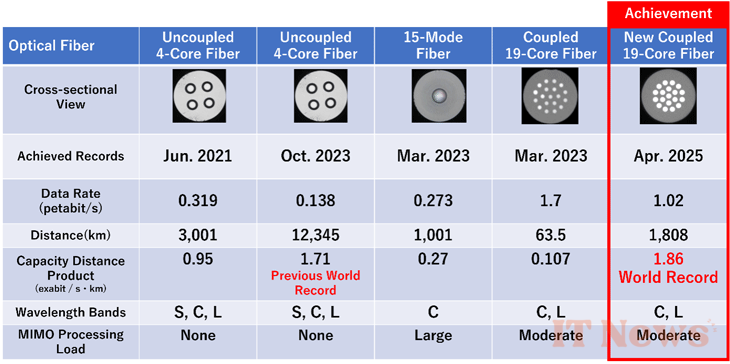Japanese researchers have proven that it is possible to combine ultra-high speed and very long distance with fiber optic technology.
Fiber optics has revolutionized the way we use the internet thanks to its performance that is far superior to that of ADSL or even VDSL. By delivering speeds of several hundred Mbps, or even higher than 1 Gbps for the best-equipped home connections, this technology perfectly meets our needs for fast internet.
But optical fiber can still go much further, and scientists regularly try to push it to its limits in a race for speeds that never seems to stop. Researchers at the National Institute of Information and Communications Technology (NICT) in Japan recently shared record results.
Almost the best optical fiber in sprints, the elite in marathons
Using a standard 19-core fiber optic cable, they announced that they had managed to achieve a speed of 1.02 petabits per second over a distance of 1,808 kilometers, the distance between Berlin and Naples. If we relate the speed to the distance covered, we obtain a performance of 1.86 exabits per kilometer per second. The previous record, set in October 2023, was 1.71 exabits per kilometer per second, over a much longer distance (12,345 kilometers), but for a much lower throughput (0.138 petabits per second).
In terms of pure throughput, without taking distance into account, another standard 19-core fiber optic cable is ahead. By March 2023, it had reached the dizzying speed of 1.7 petabits per second. But to achieve such performance, concessions had to be made regarding the distance, limited to 63.5 km.
“This new technology should significantly contribute to the expansion of communication capacities and the long-range extension of optical communication infrastructures in the future, in the face of growing communications demand,” the NICT researchers estimate. They add that they hope to further improve the efficiency of the optical amplification technology and the digital processing of the MIMO signal to achieve even more impressive performance. Towards a new record in the coming months?





0 Comments